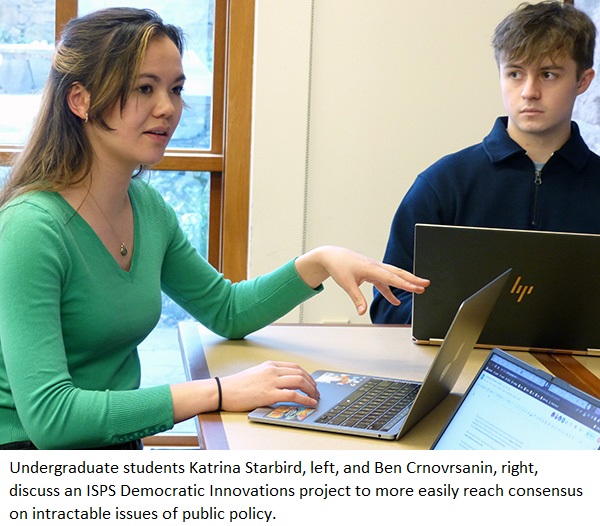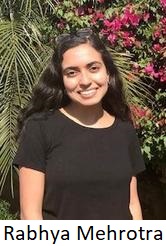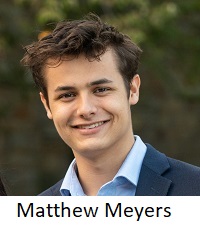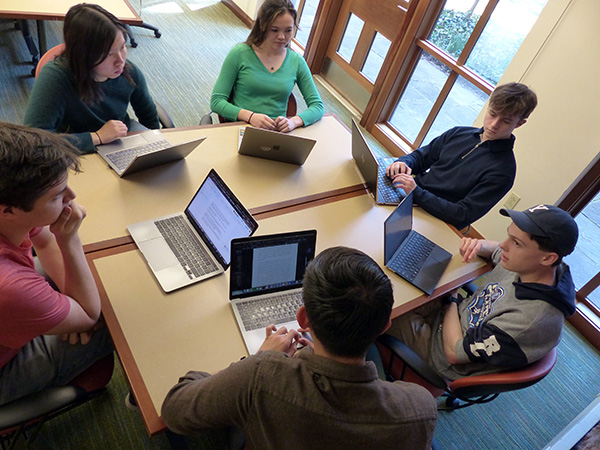Yale Students Aim to Chart the Future of Democracy

In Matthew Meyers’ first year at Yale College, a class with Yale Institution for Social Policy Studies (ISPS) faculty fellow Hélène Landemore persuaded him to rethink what democracy could mean.
Landemore’s book, “Open Democracy: Reinventing Popular Rule for the Twenty-First Century,” describes a new model of democracy that would empower randomly selected ordinary citizens to deliberate and define laws and policies so as to “strengthen inclusiveness, responsiveness, and accountability in modern societies.”
Landemore is one of the leaders of Democratic Innovations, a new ISPS program designed to identify and test new ideas for improving the quality of democratic representation and governance. When Meyers discovered the program, he wanted to get involved.
“It almost seemed perfectly tailor-made for what I’m interested in,” Meyers said. “I really believe in the potential for government to do good. But I am frustrated that it is not living up to that right now.”
Meyers, Class of ’24, reached out to ISPS Director Alan Gerber, Sterling Professor of Political Science, and was excited to get a quick response and a meeting. Gerber had already reached out to Rabhya Mehrotra, Class of ’23, and together the three conceived of an undergraduate research group composed of students from different backgrounds dedicated to investigating new concepts for strengthening democracy.
“The students could contribute unique ideas and in turn, bring our concepts to their fields in the future,” Mehrotra said, noting the group would be open to anyone. “As the logic goes, greater participation leads to better solutions. There is simply more expertise and life experience to draw on from a crowd than a few experts. By building an environment in which all students can contribute — rather than only specialized graduate students — we can honor the principles of the open democracy movement.”
Now numbering nine students, the group has begun working with faculty members to design two projects based on an open-source technology called Polis, created and maintained by the nonprofit Computational Democracy Project. Using advanced statistics and machine learning, Polis facilitates conversations among large groups of people on pressing questions to produce data visualizations and analysis for determining consensus opinions — a technological tool to crowdsource policies something like the type of formal citizen jury-type bodies Landemore envisions.
“It can ideally help you aim for the middle, an opinion that people across the entire map will agree on,” Meyers said. “The idea is to find majority agreement on topics that might have seemed intractable.”
The student group plans to conduct a randomized experiment to test whether the system helps people reach consensus as the designers contend. In a second practical project, they aim to meet with local officials in New Haven and see if they can use Polis to reinvigorate discussions on a topic of policy with sharp and unmoving divisions of opinion that appears to have reached a political stalemate.
Meyers said that any students interested in joining the effort can email him at matthew.meyers@yale.edu. He expects the group to endure beyond his graduation next year thanks to ISPS’s support and trust.
“When I reached out, this was beyond anything I thought was possible for my participation,” he said. “I was imagining I would be a research assistant to one of the fellows working on Democratic Innovations. But Professor Gerber asked me to think big and then gave us the institutional backing to make it happen.”
Mehrotra, who graduated earlier this year, agreed. In the fall, she will begin work on her master’s degree in political communication at Dublin City University in Ireland as one of 12 students across the country selected for the George J. Mitchell Scholarship.
“I see the program Matt and I began as a crucial source of both academic study on democratic innovation in America as well as an incubator for practical applications,” she said. “Anti-democratic forces remain potent in American politics. Yet authoritarian measures will never give disaffected citizens the power they seek. We need to find ways to further include citizens in government decision making processes as a more permanent and effective solution.”
